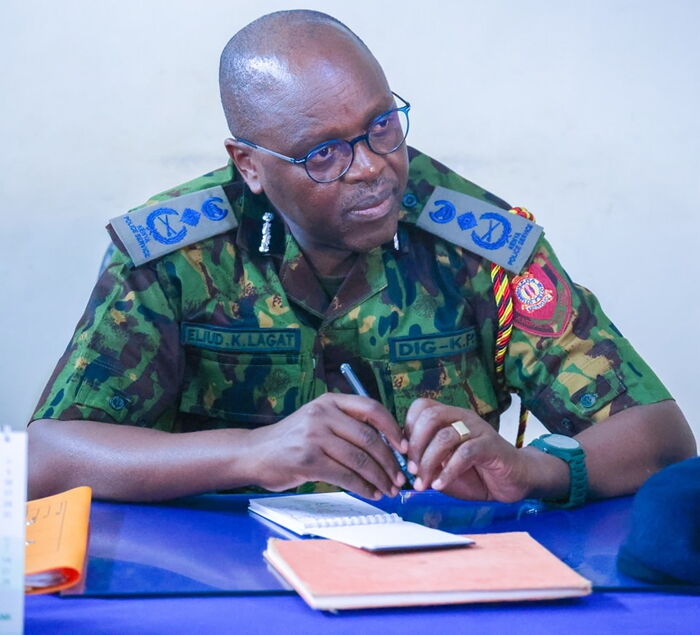Deputy Inspector General (DIG) of Police Eliud Lagat has told the court that only the Director of Public Prosecutions (DPP) has the constitutional authority to decide whether he should face charges over the death of blogger Albert Omondi Ojwang.
Through his lawyer, Cecil Miller, Lagat argued that compelling the DPP to prosecute him would amount to an unlawful takeover of constitutionally mandated powers and set a dangerous precedent undermining prosecutorial independence.
“The petitioners’ prayer to have this court compel the DPP to prosecute the 11th Respondent is an improper attempt to take over the functions of independent institutions,” the submissions state. “This court cannot declare someone guilty without a trial nor direct the DPP to prosecute absent evidence of constitutional failure.”
Lagat has denied any involvement in Ojwang’s alleged arrest, torture, and killing. He told the court that both the Independent Policing Oversight Authority (IPOA) and the DPP had investigated the matter and found no evidence linking him to the incident. The investigations, he said, led to charges against other individuals deemed culpable.
According to court documents, Lagat voluntarily stepped aside from his duties to facilitate “unfettered investigations” and maintains that his continued service does not breach any constitutional provision.
“The blanket allegation that I am a prime suspect is defamatory and unsupported by any investigative finding,” Lagat submitted. “The law does not impute liability simply because of rank or office, absent proof of personal involvement.”
He further noted that he was not present at the scene of the incident, did not issue any unlawful instructions, and that his role as DIG was “purely administrative and command-based,” without direct operational involvement.
Lagat’s legal team argues that the petitioners’ case hinges on the assumption that his position alone makes him liable, a stance he says is unsupported by direct, circumstantial, or inferential evidence.
The court is now tasked with determining whether it can compel the DPP to act in the absence of fresh evidence or whether the constitutional principle of prosecutorial independence shields Lagat from such an order.

